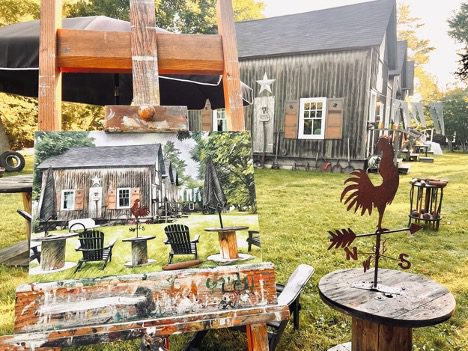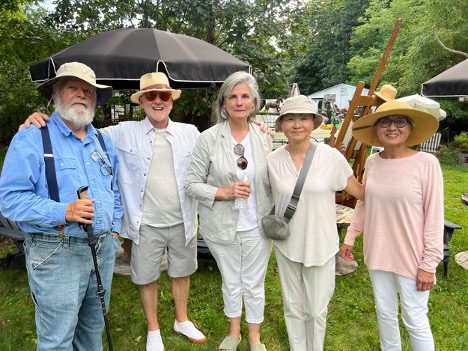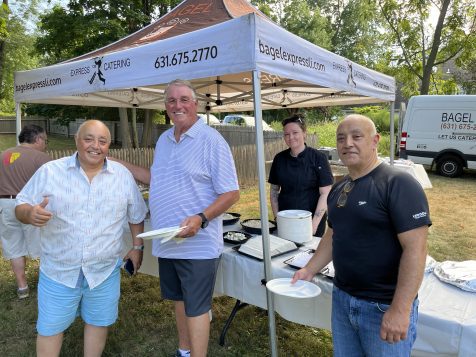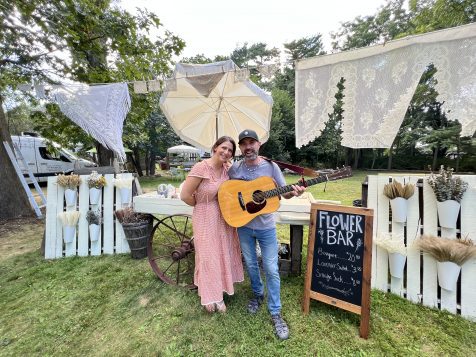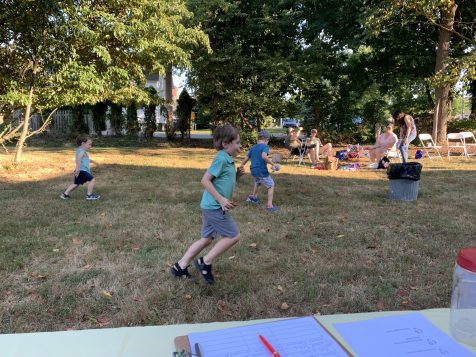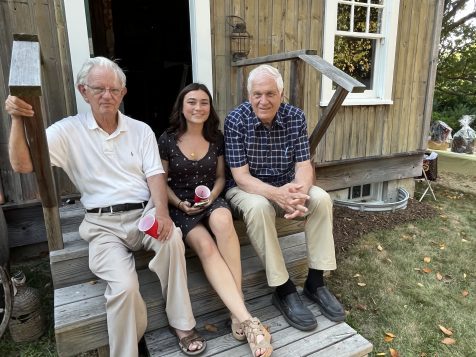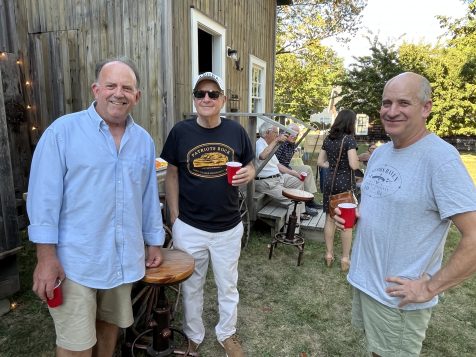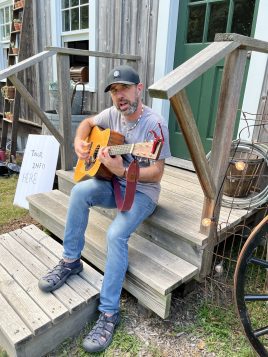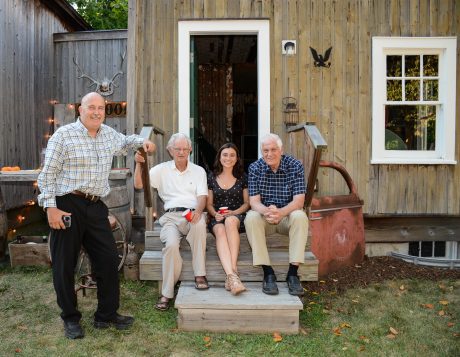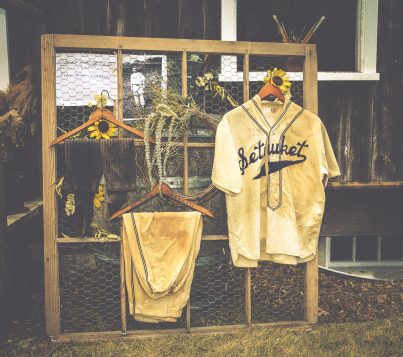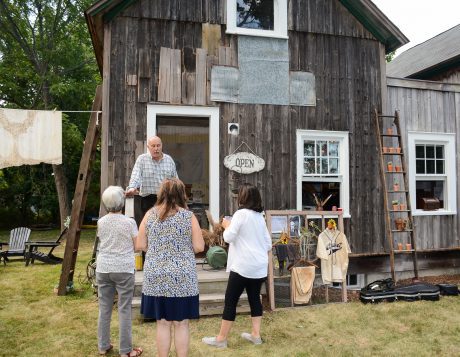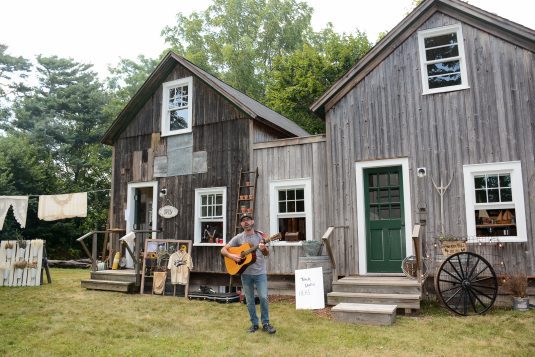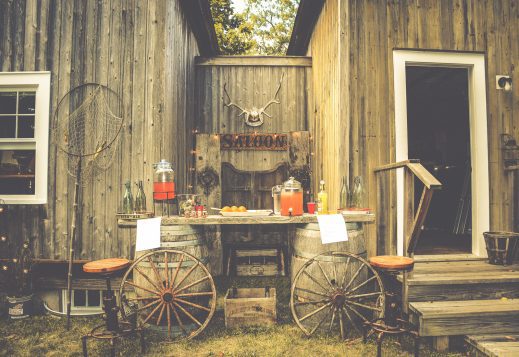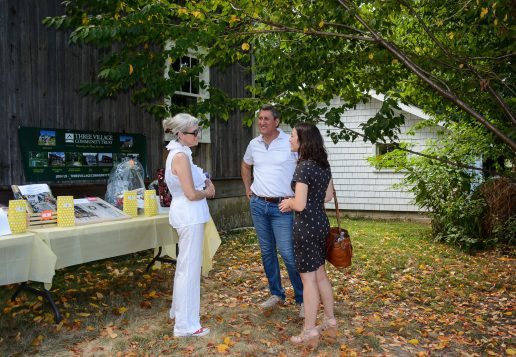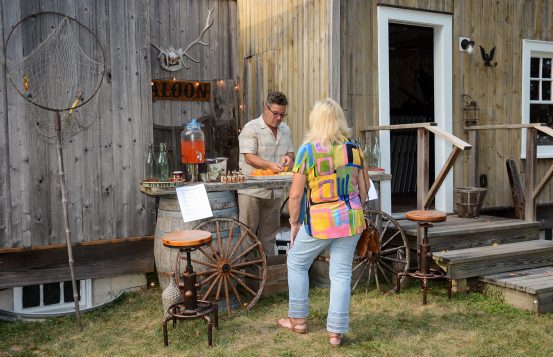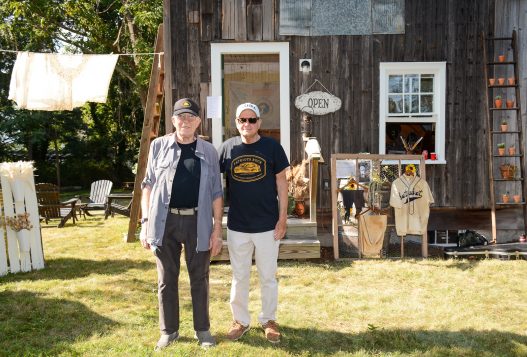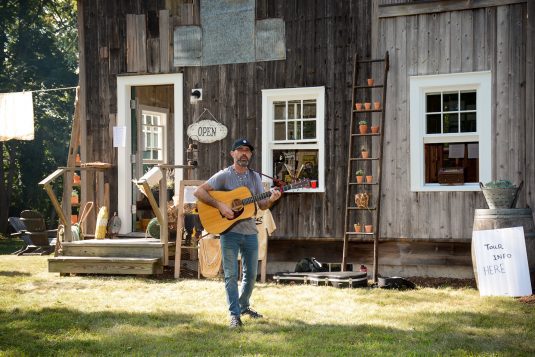A fun family event that celebrates a forgotten part of the history of the Three Villages
Tickets are now on sale for the Three Village Community Trust’s 9th annual Chicken Hill BBQ, a genuine old-fashioned country picnic to be held on the lawn of the Bruce House and the Rubber Factory Worker Houses, 148 Main St., Setauket on Saturday, Aug. 17 from 4 p.m. to 7 p.m.
Titled Celebrating a Special Time and Place in Our Past, the event will feature delicious food, live music by the Rum Dogs, house tours, raffle baskets, auction items and more with special guests Hub and Nellie Edwards.
This year’s barbecue has an expanded menu with pulled pork, BBQ chicken, corn on the cob, hot dogs, hamburgers, sausage and peppers, watermelon and more!
At one time, the area surrounding the Three Village Community Trust’s Headquarters, and the Factory Houses, at 148 Main Street was known as Chicken Hill. Extending a half mile in each direction, Chicken Hill was a diverse, multi-cultural neighborhood that became an important foundation for today’s Three Village community! Many of the people living in Chicken Hill in the 1800’s and early 1900’s were southern and Eastern European immigrants, Irish immigrants, Native Americans and African Americans – all who worked at the local Setauket Rubber Factory. The ‘Immigrant Factory Houses’ at 148 Main Street are a visible reminder of a bygone era.
Tickets are $30 adults in advance ($40 at the door); children ages 5 to 12 $10; children under the age of 5 are free. Rain date is Aug. 18. Proceeds benefit the Trust’s ongoing restoration projects. To order tickets, visit threevillagecommunitytrust.org. 631-689-0225
All proceeds from the event will go to the ongoing restoration of the Factory Worker Houses, and the other historical properties of the Trust, as well as the upkeep of the Setauket to Port Jefferson Station Greenway.
Date: Saturday, August 17th, 2024
Site: 148 Main Street, Setauket
Time: Grounds open at 4pm with live music by the Rum Dogs
Tickets: $30 per person, $40 at the door, Kids 5-12 $10, Under 5 free
Online sales at: threevillagecommunitytrust.org or mail your check to TVCT, PO Box 2596, Setauket, NY 11733
Benefit: Restoration projects of the Trust.
Bring: BYOB
Need more info? Call H. Mones at 631-942-4558, or write to [email protected], or [email protected]
Background:
The three Factory Worker Houses at 148 Main Street in Setauket were built in the late 1800’s and represent an important part of the American immigrant experience.
Near this site, the Setauket Rubber Factory operated as Long Island’s leading producer of domestic goods. Hundreds of workers helped manufacture such items as shoes, boots, belts, tires and rain gear.
Immigrants arriving in New York City from Eastern Europe and Russia were promised steady work and inexpensive housing. These new Americans came to this area in the hopes of a better life, although the work was difficult, conditions poor and the pay low.
Housing was provided by the factory owners in the form of small “factory houses” located throughout the community. Each of the “company houses” has essentially two rooms – one room on the first floor and one on the second floor. Several families would crowd into the houses to afford the monthly rent payments. The area surrounding the three factory houses at 148 Main Street (a half mile in each direction) – was known as “Chicken Hill.” The factory houses at this site still maintain their original interior and exterior – allowing visitors a look ‘back in time.’
Despite the poor working and living conditions, the immigrants helped build a vibrant community. By 1881, there were enough Irish-Catholics in Setauket to hold a St. Patrick’s Day Parade and build the community’s first Catholic Church on Main Street. The Jewish population, recruited from Ellis Island, was large enough to support a synagogue – the first on Long Island outside of Brooklyn and Queens – called Agudas Achim or “Good Fellowship.
Saved from demolition due to the efforts of former NYS Assemblyman Steven Englebright, the Three Village Community Trust and dedicated community volunteers, the “Immigrant Worker Factory Houses” were moved to the Trust’s headquarters for the purpose of preservation, restoration, and education.
Today, these small, rustic houses are a visual reminder of the hopes, dreams and struggles of so many of our nation’s immigrants. And, every year, the Chicken Hill Country Picnic keeps the memory of ‘a community lost in time’ alive!


